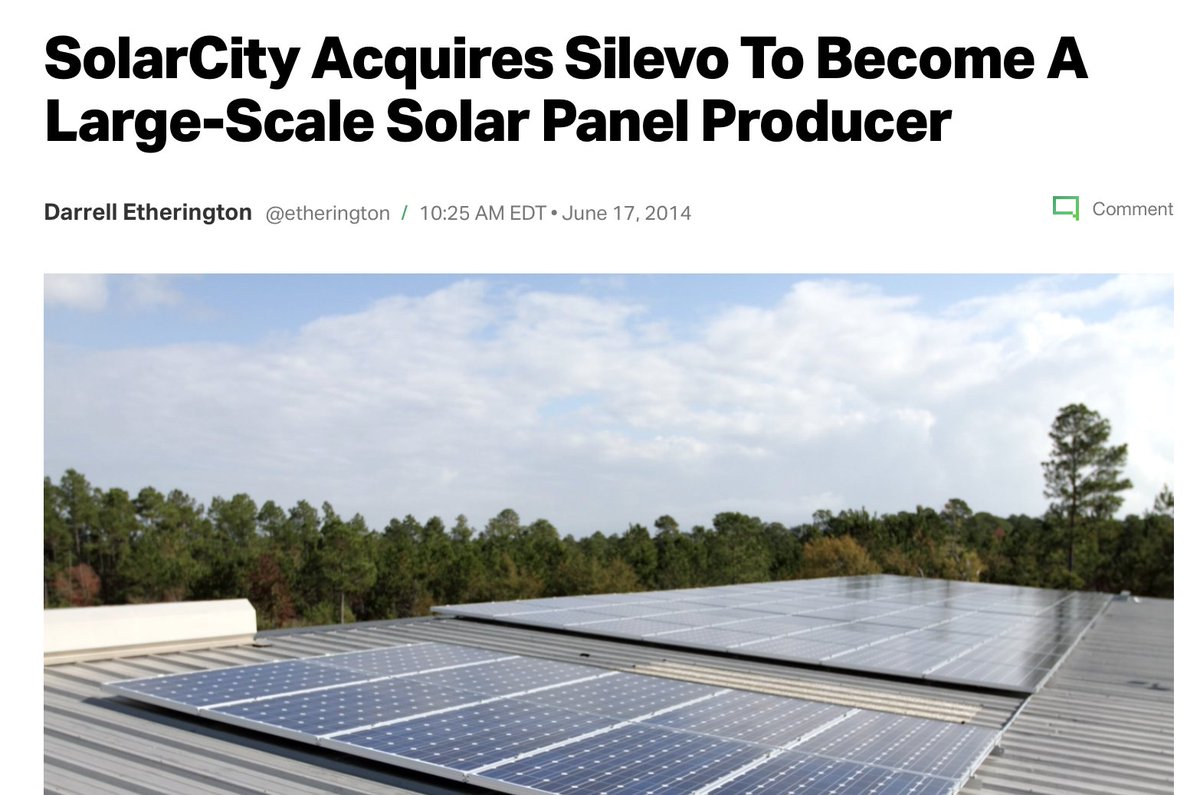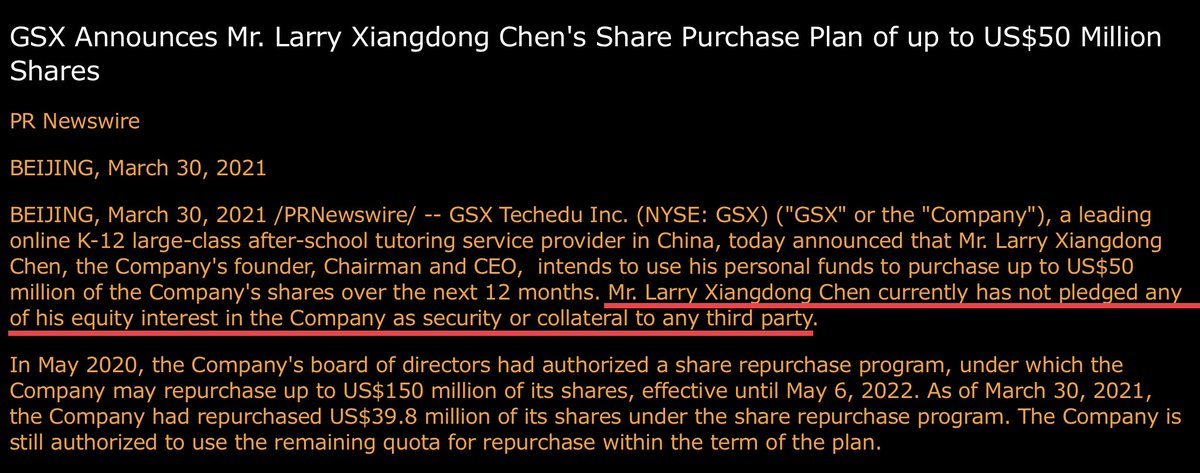
1/ As I work my way through the SolarCity transcripts, I think it is pretty clear what happened here and why. Some thoughts. $TSLAQ
2/ At its core, SolarCity wasn't really a solar company. It was a financing company wrapped in an aggressive stock promote. The heart of the business was sourcing and installing solar in exchange for power purchase agreements (PPAs) and tax credits which could be securitized.
3/ When I say SolarCity wasn't really a solar company, what I mean is they didn't make solar panels or solar inverters. They sourced these things from the market and acted as a financing intermediary with and installer for (mostly) residential customers.
4/ The cash costs of the transaction were covered by SolarCity upfront. The tax credits were then monetized using variable interest entities (VIEs) which allowed rich people to reduce their tax burdens. The PPAs could either be slowly collected on or securitized.
5/ Cash and credit are the KEY inputs into such a business. Without continuous access to cash and credit, SolarCity could not maintain growth (at the time, very few residential customers paid cash or used loans to pay upfront for their systems - they mostly leased).
6/ Further, the securitization process for monetizing solar PPA cash flows was new and relatively underdeveloped. SolarCity's cash equity deal with John Hancock in May of 2016 was both unique and poorly received by the market.
7/ When you urgently depend on continuous financing IN and financing OUT to run and grow your business, one of your MOST IMPORTANT tasks is making sure the market is confident in your prudence and your balance sheet for the long term.
8/ And this is where the "aggressive stock promote" aspect of SolarCity led to their undoing. Elon's history is well known. He takes insane risks, pushing companies to the very limit. Just read @Tweetermeyer's excellent book Ludicrous. He only has one speed.
9/ With SolarCity, extreme growth took precedence over prudence. Extreme growth meant extreme upfront cash needs. Elon also insisted SolarCity do huge things. It tried to back integrate into making panels by acquiring Silevo. It embarked on the Buffalo fiasco. And so on. 

10/ With Tesla, Elon felt he could always tap the equity markets to fund his growth. He naively assumed the same was true for SolarCity. The difference between the two is the timing and size of the cash outflows vs inflows. When you sell a car, you get all the cash, unlike solar.
11/ As @John_Hempton likes to say, be wary of fast growing financing companies. With generous enough terms, it isn't that hard to grow. And SolarCity grew FAST. Fast growth became the key to SolarCity's rising stock price. So far so good.
12/ But by the time 2015 rolls around, the amount of cash needed by SolarCity to MAINTAIN their installation rate (let alone grow it) was enormous. They simply didn't have the cash to grow. On top of that, Silevo had significant cash needs to build out the promised factory.
13/ SolarCity's stock price began to fall. It was previously priced for huge growth, and the market deduced that growth was no longer forthcoming. The market was losing confidence in SolarCity, and the financing business is nothing if not a confidence game.
14/ Elon testified on SolarCity's troubles. He said "It's not anything to do with the health of the business, but merely the timing of payments."
Memo to Elon: Timing of payments IS THE BUSINESS.
Memo to Elon: Timing of payments IS THE BUSINESS.

15/ As SolarCity kept reducing MW guidance (they didn't have the cash to keep the plates spinning), the stock kept falling, and a solvency crisis seemed inevitable. Elon used SpaceX money, his own money, and ultimately Tesla equity to salvage the situation.
16/ The reason SolarCity's growth collapsed after Tesla bought it is because Tesla itself didn't have the cash to fund installations. They also refocused a lot of resources on the Model 3 crisis. 

17/ If SolarCity had maintained prudence (i.e. grew in a controlled way) and maintained focus (i.e. didn't embark on the Silevo/Buffalo adventures), they MIGHT have carved out a decent business as the solar market matured.
18/ And that is how the wrapping of the stock promote around what was essentially a financing business led to Elon sitting in a Delaware court two weeks ago. <fin>
• • •
Missing some Tweet in this thread? You can try to
force a refresh














